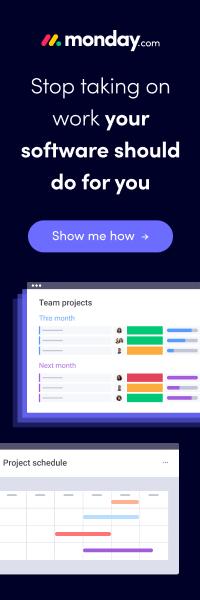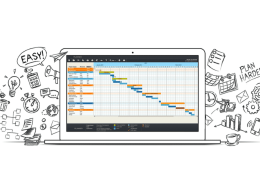Engineering administration plays a crucial role in driving project success by integrating engineering principles with effective management strategies.
The role of an engineering administrator, as described in an article by Zippia, involves overseeing engineering projects and ensuring their successful execution. These professionals are responsible for creating project budgets, managing workflow efficiency, and assigning tasks to team members. They may also be involved in the recruitment and training of employees for their team, depending on their discretion.
This article explores the impact of engineering administration on project delivery, emphasizing the benefits it brings to the table.
Enhancing Project Planning and Coordination
Engineering administration streamlines project planning and coordination, ensuring that all aspects of a project are carefully considered and aligned. By integrating technical expertise with managerial skills, administrators create comprehensive project plans, identify dependencies, and optimize resource allocation.
They conduct thorough feasibility studies, risk assessments, and cost-benefit analyses to drive informed decision-making. Additionally, engineering administrators facilitate effective communication among project stakeholders, ensuring clear objectives and minimizing misunderstandings.
It is emphasized that taking a holistic approach to project planning and coordination leads to improved project outcomes. This includes various benefits such as increased efficiency, minimized delays, and heightened customer satisfaction.
A blog post on Project Management Knowledge highlights that customer satisfaction is an integral component of project quality management. It encompasses ensuring that the project’s policies, objectives, and responsibilities align with the satisfaction of all stakeholders involved.
Online Programs in Engineering Management
Online programs in engineering management offer professionals the opportunity to enhance their skills without the constraints of traditional classroom-based learning. According to Kettering Global, these programs provide flexible schedules, interactive online platforms, and access to industry-leading instructors. Participants can pursue advanced education while balancing work and other commitments.
A Masters in engineering management online degree is one of the most popular remote programs in engineering administration. It covers a wide range of topics, such as project management methodologies, leadership and organizational behavior, strategic planning, and technology management.
Through online discussions, virtual collaboration, and hands-on projects, participants gain valuable insights and practical knowledge applicable to real-world scenarios. These programs empower professionals to excel in their roles, advance their careers, and contribute effectively to project management in their organizations.
Leveraging Technological Tools
Engineering administrators harness technology to streamline processes and enhance collaboration among project teams. Utilizing project management software, communication tools, and data analytics, administrators facilitate real-time information sharing, document control, and progress tracking.
They leverage digital platforms to centralize project documentation, ensuring accessibility and reducing the risk of information loss. Additionally, engineering administrators utilize advanced data analytics to extract valuable insights, enabling data-driven decision-making.
By embracing technological tools, administrators improve efficiency by automating repetitive tasks, reducing errors, and optimizing resource utilization. Enhanced collaboration is fostered through virtual meetings, instant messaging, and collaborative workspaces, enabling effective communication and coordination regardless of team members’ physical locations.
Managing Stakeholder Expectations
Effective engineering administration involves managing stakeholder expectations by developing strong relationships. Administrators act as intermediaries between clients, project teams, and other stakeholders, ensuring clear communication, regular updates, and timely resolution of issues.
They establish open lines of communication, actively listen to stakeholders’ concerns, and provide transparent project status updates. By understanding stakeholders’ needs and expectations, engineering administrators can align project goals with stakeholder requirements. This helps in managing potential conflicts, addressing changes in scope, and maintaining client satisfaction.
Building strong relationships with stakeholders promotes trust, enhances engagement, and fosters a collaborative project environment where all parties work towards a common goal.
Proactive Strategies for Project Safety
Engineering administrators play a vital role in identifying and mitigating risks within projects. They develop comprehensive risk management plans, implement safety protocols, and conduct regular inspections to maintain compliance with regulations and industry standards.
Thorough risk assessments, analysis of potential hazards, and the development of contingency plans are key elements of proactive risk identification. As highlighted in an article by the Global Risk Management Institute, businesses can utilize risk identification to anticipate and plan for potentially harmful events, thereby minimizing their impact before they occur.
By engaging in risk identification, you can obtain a comprehensive understanding of the situation at hand. This knowledge can be utilized to communicate with stakeholders and facilitate better project decision-making effectively
By addressing risks proactively, administrators minimize the occurrence of accidents, reduce project delays, and create a safe working environment where all stakeholders can perform their tasks with confidence.
Monitoring Project Progress
Engineering administrators monitor project progress and performance, ensuring that projects stay on schedule and within budget. They track key performance indicators (KPIs) such as project milestones, resource utilization, and budget expenditure.
Regular progress updates and performance assessments help identify potential bottlenecks, deviations from the project plan, and areas requiring corrective action. Administrators collaborate closely with project teams, conduct periodic project reviews, and facilitate effective communication to address any issues promptly.
By monitoring project progress diligently, engineering administrators can make informed decisions, proactively solve problems, and implement necessary adjustments. This active project oversight ensures projects remain on track, objectives are met, and successful project completion is achieved.
Final Word
Engineering administration brings a competitive advantage to project management through its ability to integrate engineering principles with effective management strategies.
By enhancing project planning and coordination, leveraging technological tools, managing stakeholder expectations, implementing proactive risk management, and monitoring project progress, engineering administrators drive project success and optimize outcomes.
Through online programs, professionals can expand their skills while maintaining flexibility. The use of technology streamlines processes and fosters collaboration, while proactive strategies ensure safety and minimize risks. The diligent monitoring of project progress enables informed decision-making and timely problem-solving.
Embracing the benefits of engineering administration empowers organizations to excel in project management, achieve objectives, and gain a competitive edge in the market.


















